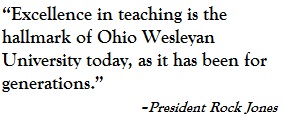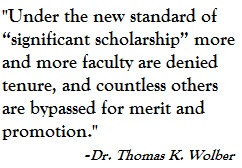By: TC Brown
By many measures, this winter has been a pain in areas where the sun rarely reaches.
Dreadful weather is bad enough on its own, but it can also be a real boon for the radical element that deny the existence of climate change.
The cold, snow and ice morph into a convenient prop for these folks and their head-in-the-sand outlook that says changes in climate are not fueled by the world’s booming population and the ever increasing numbers of people driving fuel-burning vehicles.
Forget that in 2013 a United Nations panel, which includes thousands of scientists from around the world, said it is a 95 percent certainty that humans are the “dominant cause” behind the monumental changes to our climate.
They’re not alone. NASA, the National Academy of Sciences, the U.S. Department of Defense, the American Association for the Advancement of Science and the American Meteorological Society agree, as noted recently in The Columbus Dispatch.
Scientists seem unequivocal in their reasoning, so who’s to argue?
Send in the clowns.
At the end of February, Sen. James Inhofe, an Oklahoma Republican and well-known denier, packed snow into a large ball and lugged it into the Senate chambers. “Do you know what this is? It’s a snowball,” Inhofe said.
Not getting anything past this Congress.
Inhofe explained he had made the snowball outside and that it was very cold, “very unseasonable.” Really? Snow in February, who knew.
There’s more. Earlier this month employees of Florida’s Department of Environmental Protection revealed that they are forbidden to use phrases like “global warming” and “climate change” in official communications.
Soon after that news broke a former staffer from the Pennsylvania Department of Conservation and Natural Resources said they had been “explicitly ordered” to remove all references to climate change from the organization’s website.
And the North Carolina Department of Environment and Natural Resources also deleted links and documents related to climate change from its website. Not to be outdone, 39 Republican U.S. senators opposed an amendment that blamed human activity for climate shifts.
Playing politics with this somber and factual meteorological phenomena is a very dangerous game. Last year, that same U.N. panel of global scientists issued a report that said greenhouse gas emissions are the highest in history. The gasses come from a variety of sources, especially from the burning of fossil fuels for electricity, heat and transportation, and can trap and hold heat in the atmosphere. Globally, the ten hottest years on record have occurred since 1998.
In 2008, I spent six months helping climate change scientists develop multimedia content for their website. Frankly, I was startled by what I learned and that was seven years ago.
Glaciers and ice packs in mountain regions are in full retreat. Melting ice is expected to contribute to a continuing rise in sea levels, threatening many costal cities and potentially displacing millions. Global sea levels rose a little more than 6 ½ inches in the last century and the rate in the last decade is nearly double that, according to NASA. Small Pacific islands are sinking.
The changing climate is likely to fuel more violent and costly storms, create regional droughts and threaten the natural habitat of animal and plant life. The Nature Conservancy predicts that if the changes continue to occur rapidly, one-fourth of Earth’s species could be headed toward extinction by 2050.
Superstorm Sandy, which plowed into New Jersey in 2012, cost at least $65 billion in damages, making it the second most costly storm since Katrina wiped out the New Orleans region, according to the National Oceanic and Atmospheric Administration.
Sobering stuff, but that’s simply a big-picture scan of the potential danger and damage. Deeper evidence abounds should one look, and I strongly urge the students on this campus to get engaged.
The deniers like to claim that this is all a liberal media hoax and that little if any proof exists. Guess what drives that view? Money.
It will cost many industries real cash to clean up and reduce carbon emissions and many of those organizations and their political allies have said, “No thanks, not enough proof.”
Helen Keller, the deaf and blind author, political activist and lecturer once said, “The only thing worse than being blind is having sight but not vision.”
The scientific jury is still out on whether it is too late for us to do anything to reverse these processes. It’s clear we all need to at least try. But this country, in fact the entire planet, needs vision regarding climate change and how we as a human race might diminish these looming dangers. Politically motivated denial simply digs a deeper hole for everyone.
I’ve heard the denier’s arguments that the changes now underway have occurred on the Earth before. Certainly true, but the planet was not home to 7 billion people at the time. That’s where the dangers lie.
It’s going to take personal and even global energy to try to turn the direction in which we are headed. It’s a vital calling, if for nothing else, one simple fact – the wellbeing of future generations. It’s time to stop the political gamesmanship and act.
If we don’t, the kids will pay the real price.
TC Brown is an adjunct instructor of journalism at Ohio Wesleyan, an author, and a journalist of 25 years. His work has been featured in many publications, including The New York Times and Cleveland’s The Plain Dealer.
 To the members of the Ohio Wesleyan University community:
To the members of the Ohio Wesleyan University community:


